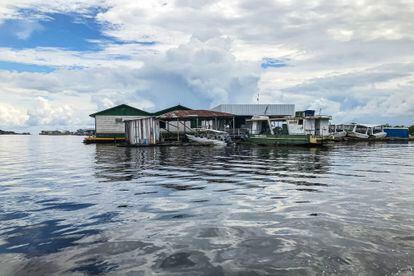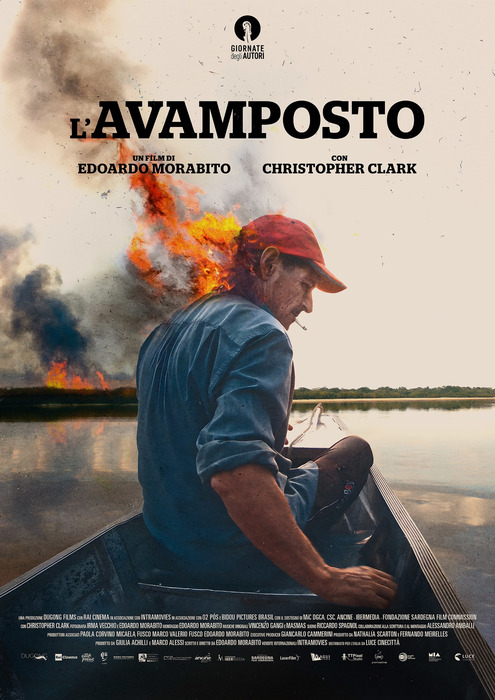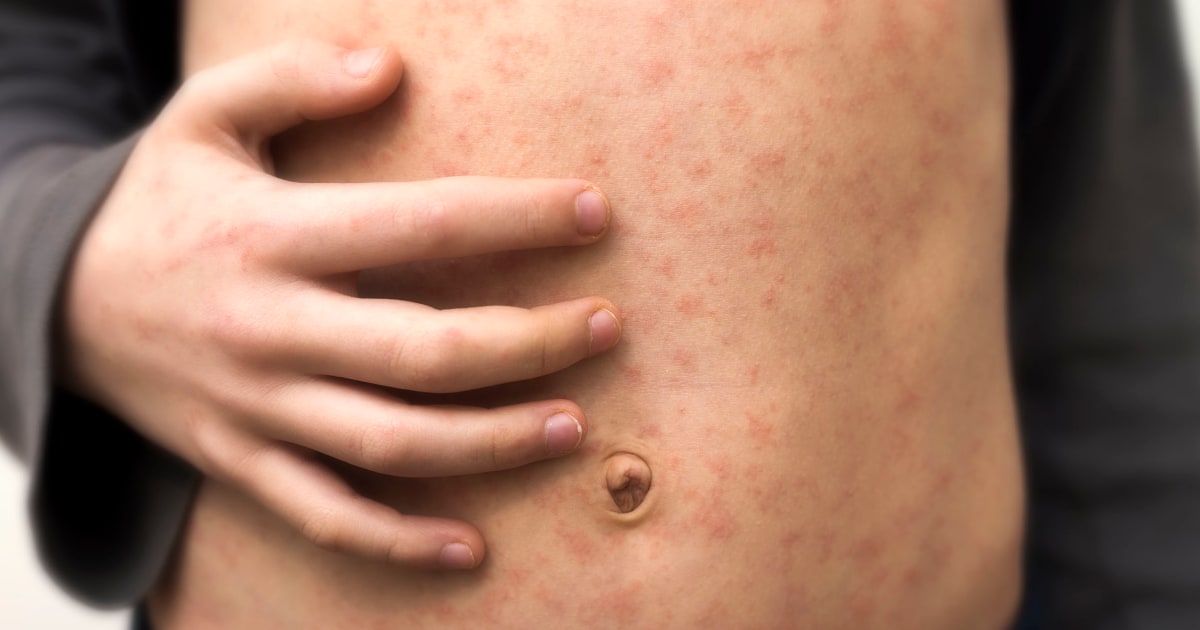Açai is the latest rage among those who claim to eat healthy. The berry that grows on top of palm trees in villages like Punã in the deep Amazon triumphs in half the world. Contains antioxidants, nourishes and gives energy. Converted into a dense purple liquid, the villagers of Punã (Brazil) drink it daily and in a thousand ways. With fish like pirarucú, with chicken. Mixed with
crispy cassava
fariña
. For dessert, with or without sugar. Some with salt. "We used to take it to eat during the day because it spoils quickly," says Ariel de Souza, 23 years old. A recently restored building centenary of the rubber fever presides over the little town on the banks of the Amazon River.
It is one of the most remote places on the planet.
Peculiar place, with family crops in the middle of the exuberant vegetation, days from sunrise to sunset, homes with a monotonous diet, few possessions and large televisions, where at sunset the girls also play soccer and the teenagers have Instagram.
Açai was a subsistence food until what De Souza calls “the revolution” arrived: electricity, the refrigerator.
That gave another life to food and to these riverside villages that were created by Brazilians from other regions who came to work in rubber at the end of the 19th century.
"It was always pure sustenance, but açai became a business a few years ago," says his 46-year-old neighbor Rocima Fração.
Luciane do Nascimento, a resident of the village of Punã, a student of the Sustainable Development Management Technician course at Fundação Amazonia Sustentavel and mother of eight children Naiara Galarraga Gortázar
When he says business, he is not thinking of the açai stands that sprout around the world.
It refers to something quite modest, but that has brought an unknown prosperity to the farmers of this set of wooden houses where high school and Wi-Fi arrived.
Now they produce açai to sell in other villages on the banks of the Amazon River or even in the city. Tefé -the closest one- is an hour away by boat now that the largest flood in 120 years allows taking shortcuts; Getting to Manaus takes two nights and a day of sailing downstream. Rivers are the equivalent of roads in an intoxicating landscape that turns the transfer of products or people into a living hell. The sunsets take your breath away, although this beautiful immensity camouflages important drug trafficking routes. Although it may seem to the eye accustomed to the city that little has changed around here in recent centuries, the locals mention species of animals that they no longer see, ever-widening river beaches in the dry season and large floods in the rainy season.
The health of the planet depends to a large extent on the 150 families of Punã (a huge village compared to its neighbors), other riverside communities and the indigenous people who live in the Amazon because they play an essential role in the preservation of the largest tropical forest in the world.
Fraçao remembers the times when a kilo of açai was paid at six cents.
"Do you remember?" He says to another neighbor who points out: "When I started it was 12 cents."
It sounds as if they were talking about their ancestors, about a life they did not know.
Now it is sold for five reais a kilo (0.80 euros).
But everything is regulated so that the business is ecologically sustainable.
Neighbors have teamed up with Fundação Amazônia Sustentável (FAS) to circumvent intermediaries that reduce the profits of açai, pirarucú or
fariña
producers
cassava (as essential in the diet as bread in Spain or tortillas in Mexico).
FAS, which invited this newspaper to Punã, has diverse projects in more than 500 villages.
Among them, promoting sustainable businesses that help keep the forest standing and improve the lives of those who care for it.
A village on the banks of the Amazon River in the stretch between the village of Punã and the city of Tefé.Naiara Galarraga Gortázar
Another of the local businesses, a fish called pirarucú, stars in one of the best success stories in the Amazon. It was on the verge of extinction when the arrival of motor boats triggered the fishing. An alliance between science and tradition managed to turn it around to the point of turning it into a
delicatessen
that is on the menus of some sophisticated restaurants in Rio de Janeiro or São Paulo and abroad. And its soft leather, turned into beautiful bags in
chic
stores
that claim to support sustainability.
A researcher from the Mamirauá nature reserve, who can be seen on the horizon, on the opposite shore, discovered that the locals had an effective ancestral method to count these giant fish with reddish scales that, strangely, come out to breathe every 20 minutes . That moment is enough for traditional fishermen to count them and know if they are babies or adults, explains Pedro Nassar, from the Mamirauá Institute. The traditional count, with the highest precision, serves as the basis for quotas that have achieved the survival of a species on the brink of extinction.
"Pirarucú is 100% organic, it feeds on wild fruits," emphasizes Raimon Rodrigues, a 28-year-old man who chairs the residents' association of the Mamirauá reserve. "The margin of error in the count is between 2% and 5% and we can fish 30% of the adults to leave
stock,
" he says. His father was a fisherman; he studied in the city, but returned to the village. And now he defends the interests of his own, including some 1,100 pirarucú fishermen, who can fish all year for their families, but only for three months for trade. They plan to buy a boat with a freezer.
These products are a way to generate income through legal channels in a remote region where the State has little presence and illegal businesses are profitable. Each family gets almost 2,000 reais (320 euros, 390 dollars) per açai harvest, almost 3,000 reais with the fariña and 3,700 reais with the pirarucú. But the path from this corner of the Amazon to the client is tortuous and plagued by voracious intermediaries. "We want you to get rich here, to prosper, it is as if you were sitting on a great gold mine", Virgilio Viana, 60, the superintendent of the FAS tells several dozen residents of Punã who are the students of the first course of technician in sustainable management that the organization promotes with the State Government of Amazonas. Although the villagers are vaccinated,all wear a mask as these times of pandemic order.
The idea is that they light projects that allow them to prosper in the land of their ancestors, stop the exodus to the city that attracts so much. The teenagers here tell that bathing in a stream is the great plan of the weekend. Among the students, many kids just out of school but also brave adults like Luciane do Nascimento. At 34 years old, with eight children and two grandchildren, she is excited about going back to school. He says that "cultivating without deforesting is more laborious, but it can be done." Illegal logging and environmental crime are long gone, but have skyrocketed since President Jair Bolsonaro came to power. For him, the environment is an impediment to take advantage of natural resources and lift the Amazon out of poverty.
Francisca Miguel makes cassava 'fariña' in the village of Punã, in the Brazilian Amazon.Naiara Galarraga Gortázar
Francisca Miguel, nice, with charisma and always with crooked glasses, is 63 years old. It grew up in the days when the ships that docked in the village were steamships. You remember well when someone first spoke to you about sustainability. It was when a few years ago a small payment came to the village to the villagers in exchange for not deforesting. "Since then I haven't done it," he says solemnly. That money helps pay the bills, but his great achievement was raising awareness among the locals. Little by little, the idea that "the forest is more valuable standing than destroyed" is creeping in. A slogan that Viana gave birth to before creating the FAS, when he was secretary of the Environment and Sustainable Development of Amazonas. A phrase that ecologists, international cooperation and even some soy producers have adopted.
When Dona Francisca was little, rubber was already history, but the patron was still getting rich at the cost of keeping the villagers semi-enslaved.
Not her, who was raised as a servant by Mr. Gama's family, who had a monopoly on the sale of everything that left and entered Punã.
He expelled from the village whoever traded behind his back.
After decades of turning her back collecting cassava and her hands kneading it in fariña to educate eight children, Doña Francisca is still fighting against those intermediaries who buy her cheap production and sell it dearly to the clientele.
View of a house on the banks of the Amazon River in the village of Punã.Naiara Galarraga Gortázar
She and her neighbors are embarking on a thousand projects for their sustainable businesses to give them more money. Although her husband insists that she retire, she has no intention of doing so. "If I don't do the
fariña
, I'll be sick," he says while shaking the sieve. It devotes all its energies to adapt to the production standards required by the appellation of origin stamp that would give "more added value" to the production that the village packages and sells under its own brand.
Viana is committed to offering new horizons to the Brazilians of the Amazon. “Often the external view, from the south of Brazil or from abroad, is that deforestation is a matter of the police, when what I think we need to take care of the people who take care of the rainforest. That's another catchphrase I made up. It is useless to invest in the bioeconomy if they do not have drinking water or there is child prostitution ”.




/cloudfront-eu-central-1.images.arcpublishing.com/prisa/XWDEWCZPBVCCDFB3VJU2TWK5PY.jpg)










